I recommend Bishnu and Peaceful Nepal for arranging this Ebc 14 days tour. They reply fast and always support for any questions. Guide Pande and porter also have a good team work to help us in the mountain.
14 Days Everest Base Camp Trek is life experience trek point journey that leads to the closure point of highest mountain peak in the world (Mt. Everest). Captivating views of mountains, waterfalls, ridges, landscapes provide the inner peace and gives a memory for the life time. Beside this, glimpse of the ethnic Sherpa peoples (climbers) lifestyles, traditions give you the vibe of local Nepalese people.
Sagarmatha National park, one of the world heritage site and Buddhist monasteries being located on highest altitude can be captured during the Everest base camp trek. Sir Edmund Hillary and Tenzing Norgay Sherpa had first embarked their trek journey in 1953. Guidance of local ethnic climbers and our staff will help us to reach the destination by embarking all the views and joyful moments.
Moreover, this package provides the climbing to Kalapathhar and adds the extra magnificent views of various Himalayas peaks and Everest in the bucket list of yours trekking diaries. Cool breeze and thrilling mountains cliffs energies the inner curiosity of climbers as we initiated our trek step by step till, we reach our ultimate destination.
Moreover, it is basically designed for the climbers who is eager for gathering the thrilling experience with challenging mountain expedition. We can get a perfect blend of everything during trek trail for the ones who is yearning for a monumental journey under the beneath of the world’s tallest mountain.
However, climbers should be mentally prepared and train their selves physically before doing trek. Cardio, climb stairs, jogging, and hiking will help you to be physically fit and increase your immune power before doing trekking on the Everest region.
The 14 Days Everest Base Camp Trek is a tailor-made itinerary to ensure a top-notch adventure with a blend of cultural immersion along the trail. We will enchant ourselves with the perfect blend of trekking adventure with the local Sherpa culture, which is a rich and proud ambassador of the Everest. Here’s more on what we can expect during the trek.
We will begin this journey as we land in Tribhuwan International Airport in Kathmandu. Kathmandu is the capital city of Nepal with a great history behind it. There are as many as 10 UNESCO heritage sites around the city, which is enough evidence of how spiritual and historical this city is. The valley is decorated with green hills all around and provides the chance of exploring sightseeing from the top of the mountains. This city offers a glimpse into Nepal’s spiritual and historical heritage before the journey into the rugged Khumbu region begins.
The flight from Kathmandu to Lukla is a mere 30-minute journey, but it offers the magical vibes of the mountains when flying over the Himalayas. Not only the mountains, this trek provides the serene views of valleys, green jungles, and vibrant settlements from a bird’s-eye view. The flight is just a trailer before our mystic adventure towards the top of the Everest region. The most adventurous journey has just begun.
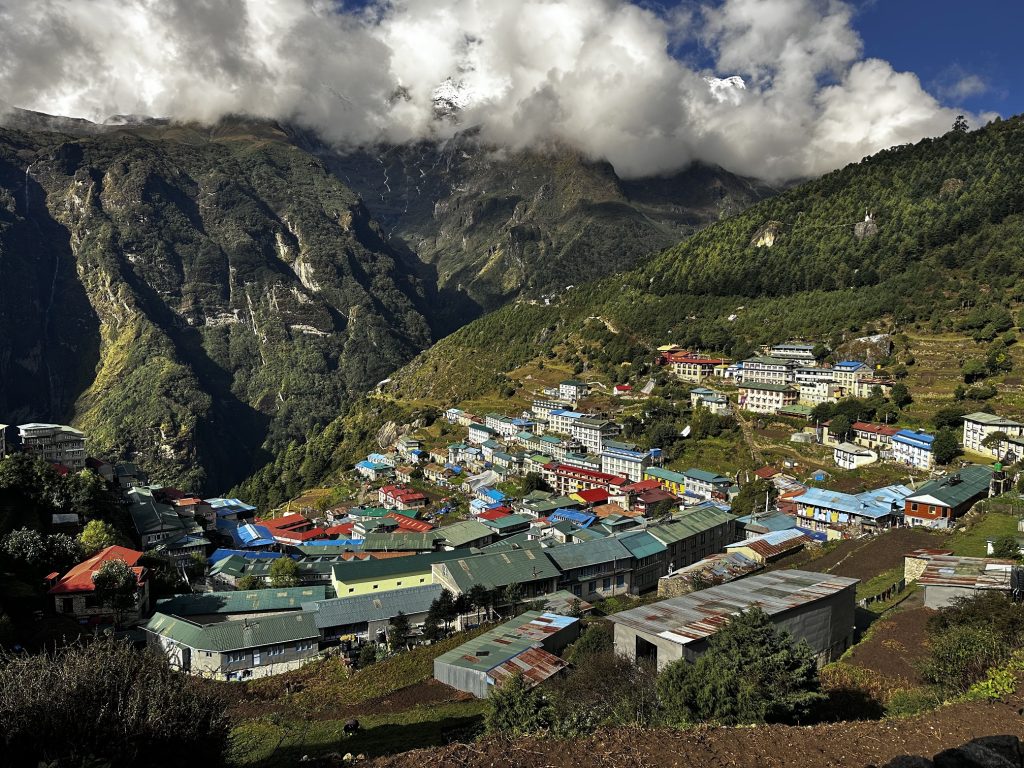
We will have a first glimpse of the adventurous trek when we walk towards the Namche Bazaar from Phakding. Crossing suspension bridges over the Dudh Koshi River and passing through the vibrant and silent Sherpa villages will add an enchanting experience to the Everest Base Camp region. Namche, which used to be a major trade hub between Tibet and Nepal, has now been developed as a major stayover place during the Everest Base Camp trek or nearby treks.
This day is dedicated to rest and exploring the city of Namche. The town used to be a bustling trade hub back in the day and now serves the trekkers. This day of rest will help you to explore a day of adaptation, as well as the interaction that helps in understanding the local culture and tradition. We will have the picturesque views of Everest and Ama Dablam for farsight.
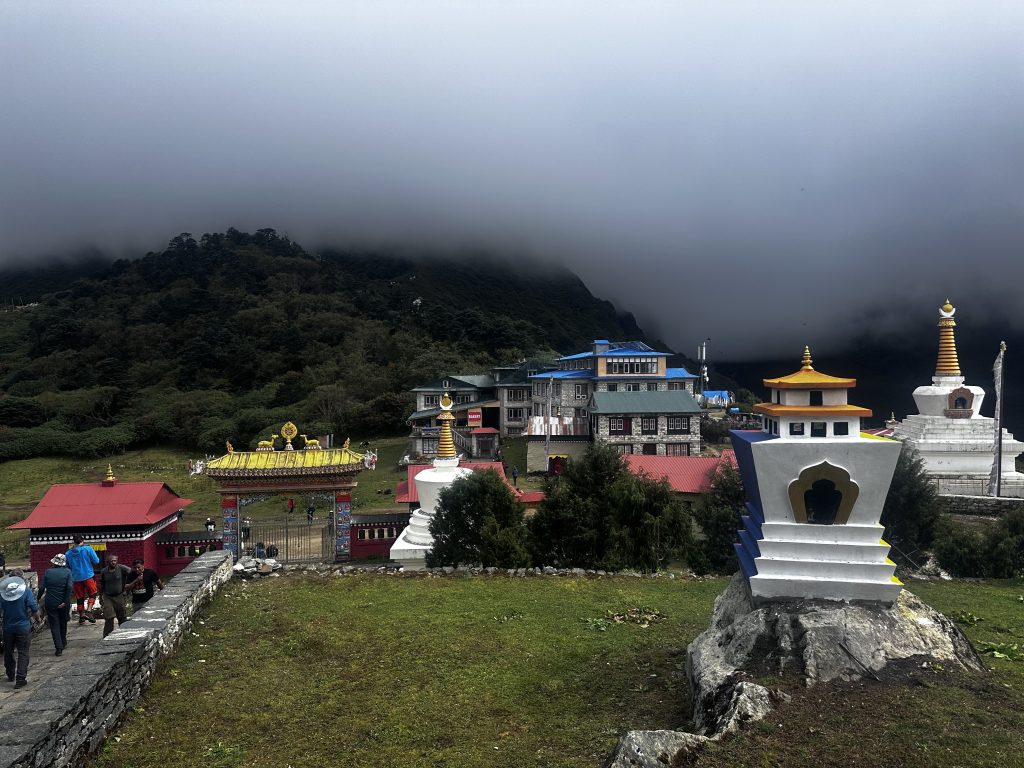
The trek to Tengboche from Namche Bazar introduces you to the iconic Tengboche Monastery, which is the spiritual heart of the Khumbu region. We set our feet against the backdrop of Everest and Ama Dablam. This sacred pilgrim is the spiritual capital of the region. We will pay a visit to this serene site, which will be one of our major highlights of the trek.
Dingboche is our next destination for an acclimatization day. The day includes an optional hike to Nagarjun Hill, which stands tall at 5100 m. This steeply challenging hill offers us the jaw-dropping views of Makalu, Lhotse, and Imja Valley. The day combines with the physical attributes and mental strength for more challenging ascents and descents of the Khumbu region on our way to Everest Base Camp.
Everest Base Camp is the major attraction and achievement of this trek by far. We will ascend from Dingboche as our final steep climb before the Everest touchdown, surrounded by towering glaciers and rugged terrain in the Khumbu. We will pass the Khumbu Icefall and distant Everest Summit in our eyescapes. The dream of touching the soil of Everest Base Camp is setting up.
Climbing towards the Kala Patthar is rather tougher and more joyous than we expect. After a touchdown at the Everest Base Camp dream, we will further climb towards this magnificent venue, which offers us 360-degree mountain views. We can look at the awe-inspiring views of Everest, Lhotse, and Nuptse from this venue. The highlight of this short, steep ascent involves the physical exertion with the reward of great Himalayan vistas.
The 14 Days Everest Base Camp Trek is a great pleasure and adventure with a mix of natural serenity and rich Sherpa culture and personal achievement. This iconic venue for trekking ensures the best of experiences while traversing through the views of Everest and the surrounding area.
The season of spring is a prime season for the Everest Base Camp trek, which bustles with the expedition groups to Mt. Everest and Lobuche. We expect this season to have blooming rhododendrons and clear skies, offering excellent mountain views.
Autumn is the most formidable season to trek anywhere in Nepal, as well as to Everest Base Camp. The season is found exceptional for post-monsoon clarity and offers the best of views from top to bottom. The trails will be vibrant and refreshed after the end of the monsoon.
The 14 Days Everest Base Camp Trek is a challenging yet rewarding adventure, demanding physical endurance and mental resilience due to high altitudes and rugged terrain. Suitable for fit trekkers with preparation, it balances strenuous ascents with acclimatization days to ensure safety. The journey tests stamina but offers unparalleled Himalayan views and personal triumph, making the effort worthwhile for adventurers seeking a bucket-list experience.
This 14 Days Everest Base Camp Trek is challenging but equally rewarding. It demands physical endurance and mental strength due to high altitudes and rugged terrain. The trek is reasonably suitable for experienced trekkers with better preparation. However, the challenge is worth a try for the views this trek offers.
Day 1: Arrival in Kathmandu
Day 2: Fly to Lukla (2840m/9318ft) and trek to Phakding(2601m/8563ft)
Day 3: Trek Phakding to Namche Bazar (3440m/11286ft)
Day 4: Acclimatizing at Namche Bazar (rest day)
Day 5: Trek from Namche bazar to Tengboche(3860m/12664ft)
Day 6: Trek from Tengboche to Dingboche (4410m/14469ft) trek hours: 5 to 6 hours
Day 7: Acclimatization day at Dingboche and hike to Nagarjun Hill(5100m)
Day 8: Trek from Dingboche to Loubche(4910m/16109ft)
Day 9: Trek from lobuche to Gorak shep (visit to Everest base camp and return back to Gorak shep)
Day 10: Trek to Kalapatthar(5550m/18209ft) and descend to Pheriche(4240m/13911ft)
Day 11: Trek from Pheriche to Namche Bazar
Day 12: Trek from Namche to Lukla(2840m/9318ft)
Day 13: Fly Lukla to Kathmandu
Day 14: Final Departure
Our representative will meet and greet you at the airport and escort you to the hotel where you will be staying overnight. After checking in the hotel, the trek guide throughout your trekking journey will briefing you about the upcoming adventure. You can clear your doubts and ask your quires on the same time if you have any. The trek trail is long so that you have to check your essentials, trekking gears and packs your rucksacks for your designated destination. However, the guide will take you to the famous tourist hub "Thamel" areas for gear shopping. You can buy your essentials there.
Everest adventure begins with a thrilling domestic flight to Lukla, after 35 minutes of flight you will reach to lukla airport where rest of crew will wait for you to begins trek journey. The walk begins between the Chauri Kharka village and plummet towards Dudh koshi river. The trail leads to the walk-through bank of the river until you reach to Phakding (2601m) which is surrounded by Sherpas community. During your trek route, you get a chance to collect memories and glimpse of khumbila, a sacred and religious peak worshipped by Sherpas. Between various unclimbed peaks in the khumbu region , Khumbila is one of them as no one is allowed to step on this religious peak. If you aren’t tired , you can roam around the village and interact with locals or you can stay back on the hotels where our food and accommodation is arranged.
After your desired breakfast at early morning, the trek trail begins towards Namche bazar. Namche bazar is known as Sherpa capital of Nepal. The trail takes you towards Nyambura Thang, chumda and Monjo and the river Dudh koshi along by side. To take a trek further, you have to take permission and registering yourself on the Sagarmatha National Park. After exploring the natural beauty inside the park, our trail extends towards the Tawaa and Larja Dovan embracing the vintage view of Mount Everest from the Tope Danda. After few minutes on Tope Danda, we will ascend towards Namche bazar, which is basically famous for economic hub of Everest Region. Our overnight stay will be on Namche bazar.
As the day 4 is your first acclimatizing day, you can rest all day on your accommodated hotel room or you can roam around Namche bazar. Cafes, restaurants, ATMs, bakeries, local restaurants can be seen in the high altitude of Everest region. You can also enjoy the Saturday market of Namche if you get a chance to acclimatize on Saturday which is very famous throughout Khumbu region. Moreover, you can give a visit to Sherpa Cultural museum and Everest photo gallery's Regards, a good sound sleep is needed before you extend your trek trail on the high altitude. Proper rest revives you for your next trail tomorrow. Overnight stay will be at Namche bazar.
Today's trail takes you to the Tengboche offering the jaw dropping views of the snowcapped Himalayan ranges on your way. Himalayan peaks of various mountains such as Everest, Nuptse, Lhotse, Kwangde, Thamserku and Ama Dabalam can be seen along the trekking trail which adds extravagant beauty throughout the trek. We can observe and walk between the areas which is full of Rhododendron, juniper and giant cliffs and ridges which makes todays trail remarkable for life time. The trekking trail ends for today once we reach the Sherpa village of Tengboche where we can get aerial view of Mt. Ama Damblam. We can get a glimpse of the largest Buddhist monastery (Tengboche Monastery) of khumbu region from Tengboche. The chants and hum by the monks of monasteries gives you a feel and inner peace, which energies you to collect more memories here in this trail. Moreover, Tengboche gives you the magnificent view of sunrise and sunsets over the mountain peaks in yellowish color brushing over the snowcapped mountains peaks. Our overnight food and accommodation for overnight will be arranged on the hotels of Tengboche.
Crossing of various suspension bridges, plains and Imja khola you reach to Pangboche. Pangboche is the village having large number of Sherpas ethnic people living permanently from a long time ago. The traditional greeting and local food keep your eyes sparkling and makes you amused. After the few times on Pangboche, we will head towards Dingboche. Captivating view of Island peak and Ama Dablam can be observe from the trail towards Dingboche. Our overnight stay will be at Dingboche finest hotels/lodges.
To revives for next day trek, you have to take a proper rest and a little practice to climb in the high altitude. As it is the second acclimatization day, you can take an acclimatization hike towards Nagarjun hill after the breakfast. The trek towards Nagarjun hill is little bit uncomfortable, there may be some loose sediments and rocks you have to watch your step because there is high chance that you may be tremble and scramble on some sections. After your hike for certain hours you will reach to Nagarjuna from where you get a best view of whole Khumbu region. Additionally, close view of Imja Glacier, Himalayan ranges of Makalu, Lhotse, kantega etc. gives you a jaw-dropping view. In the day time you can enroll with locals or you can take a rest. Our overnight stay will be at Dingboche tea house.
On this day trail ascend towards high altitude area due to which, there will be a bit difficulty on walking. On our way we will stop at the Thukla pass and devote our respects and condolences at the memorable stupa which is built in remembrance of climbers, mountaineers, who had lost their lives while climbing Mt. Everest. From the Thukla pass (4600m) we can view the peaks of mountains which shows the border line of Tibet and Nepal. Our overnight will be at lobuche tea house. Loubche is a small village having low population and the nights of lobuche gets colder so covered yourself properly.
Day 9 is the D-day that you dreamed since you start your trek journey in Everest region. Today's trek takes you to the Everest Base, which is the lap of world highest peak. This day will be tough, challenging, remarkable for life time. As you extend your walking the elevations gets rises and there is high chance of getting feel of low oxygen and altitude sickness. The guide will help you to embraced the trekking trails. The trails go with the Khumbu glacier and gravel roads. you can take slow and follow your guide, once you reach the EBC, you can picturize the moment and also you can see the climbers, mountaineers ascending towards Mt. Everest after that you will descend towards Gorak shep within couple of hours. Our overnight stay will be at tea house of Gorak shep.
At early morning after the warm breakfast, if the weather gets clear, you can head towards to Kalapatthar to see the wonderful view of sunrise and sunset over the mountain's peaks giving fiery rays from the highest point of kalapatthar. Also, summit of Mount Everest can be visible closely from kalapatthar rather than from the Everest Base Camp. Kalapatthar is surrounded by snowy and icy walls of mountains from all side. Everest, Pumori, Nuptse, Lhotse mountains adds the scenic beauty during the trekking trail to Kalapatthar. Later on, we will descend down towards Pheriche once we return Gorak shep from Kalapatthar. Our overnight stay will be at Pheriche.
Though the trek hours seem long, it is an easy downhill trek stretched from Pheriche to Tengboche. A couple of hours walking through hills and gravel road takes you to Namche bazar at late afternoon. You can enroll with locals and experience the cultural programs. Overnight will be at Namche.
At early morning you will be served by warm and nutritious breakfast, then your trail begins to lukla again. You will pass the Hilary suspension bridge and several villages on your way. overnight stay will be at hotels of lukla, where you can celebrate your victory! This night will be last night in the lap of mountains. Overnight stay will be at Lukla hotel or tea house.
Todays flight of 35 minutes will give you a vibe of having the dessert after a heavy dinner. Once you landed at domestic airport. You will be escorted to the hotel you will be staying at. You can rest afterwards or you can roam around places near your hotel like Ason, Jamal. If you wish to have sightseeing around the Kathmandu valley, you can let us know, our guide will take you for sightseeing and to celebrate night life of Kathmandu city at famous tourist hub"thamel".
In the evening time, a celebration from our side is arranged for celebrating completion of adventurous journey. Overnight stay will be at hotel.
Our responsible representatives will drop you at the TIA before three hours of departure. We believed that your 14 days here in Nepal is memorable, and we wish you to come back again to explore hidden beauties of this beautiful country.
Join one of our scheduled group departures below, or contact us to customize a private or family trip tailored to your preferred dates.
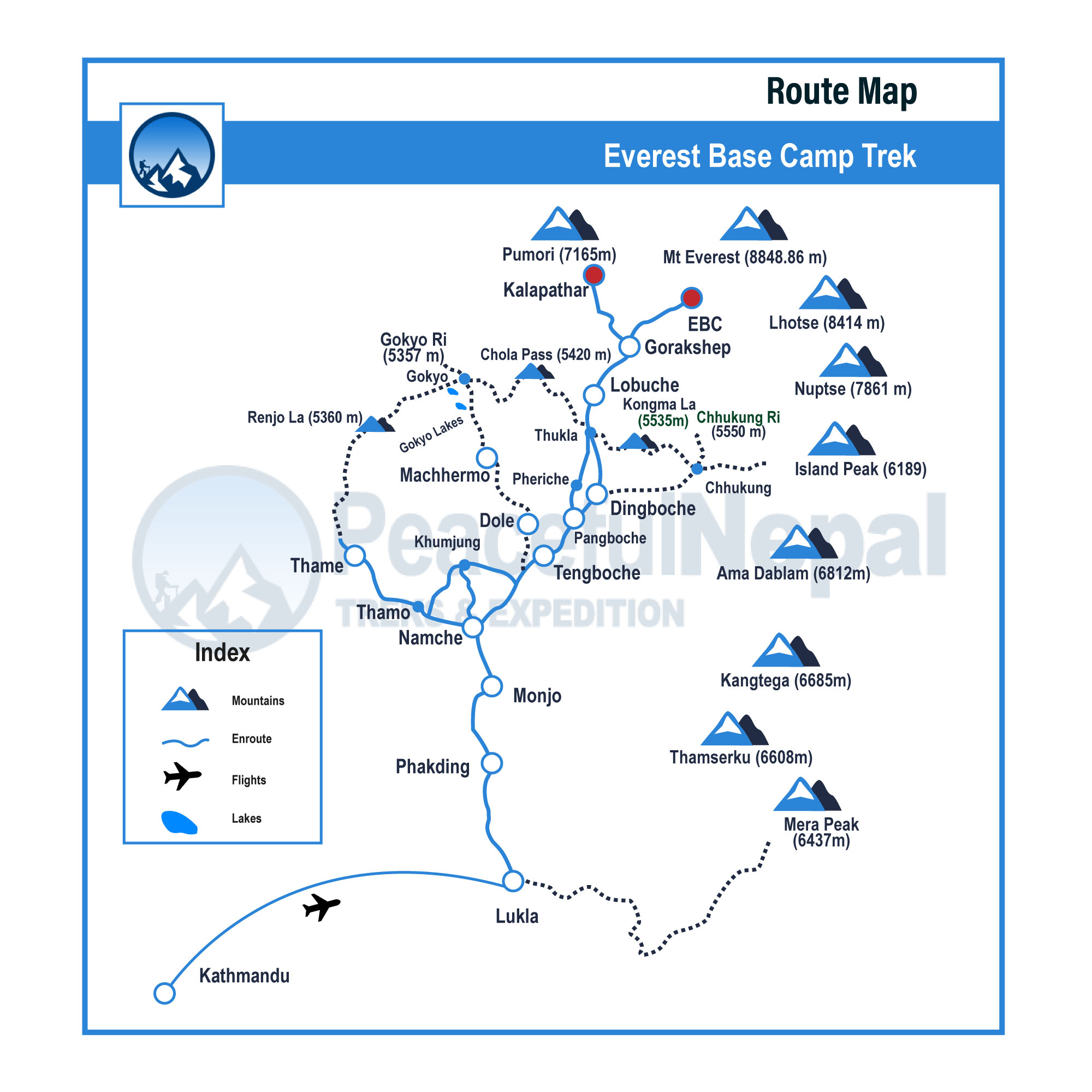
In Everest Base Camp Trek Trail or the Everest region, the availability of food and accommodation has significantly improved, catering to the needs of trekkers from around the world. Here’s an overview:
Nepali Cuisine:
Dal Bhat: A staple meal consisting of lentil soup, rice, vegetables, and sometimes meat. It’s nutritious and provides sustained energy for trekking.
Momo: Nepali dumplings filled with vegetables, meat, or cheese, often served with spicy dipping sauce.
Thukpa: A hearty noodle soup with vegetables or meat, perfect for the cold weather in the mountains.
Gundruk: Fermented leafy greens, sometimes served with rice or as a side dish.
Curry Dishes: Chicken, mutton, or vegetable curries served with rice or roti (flatbread).
Chapati: Whole wheat flatbread, often served with dal or curry.
Continental Cuisine:
Pasta: Various types of pasta dishes, including spaghetti, macaroni, and lasagna, often served with tomato or cheese-based sauces.
Pizza: Available in popular stops like Namche Bazaar, with various toppings like cheese, vegetables, and meat.
Sandwiches: Simple and quick meals, including vegetable, cheese, and egg sandwiches.
Western Breakfast Options:
Pancakes: Served with honey or jam.
Omelettes: With options like cheese, vegetables, or plain.
Porridge: Often made with oats, served with honey or dried fruits.
Tea Houses: The most common form of accommodation, providing basic yet comfortable lodging. Rooms are generally twin-sharing with shared bathrooms. Some may offer attached bathrooms at higher altitudes like Namche Bazaar. Facilities like hot showers, Wi-Fi, and charging ports are available in many tea houses, although they may come at an extra cost.
Lodges: Larger and more equipped than tea houses, especially in towns like Namche Bazaar or Lukla. These offer more amenities, including private rooms, better dining facilities, and sometimes attached bathrooms.
Luxury Lodges: Available in specific locations like Namche Bazaar, offering higher comfort levels, with amenities like heated rooms, en-suite bathrooms, and gourmet dining.
Camping: While less common due to the abundance of tea houses, some trekkers may still opt to camp, especially in more remote areas.
Recommendations: While various cuisines are available, sticking to Nepali dishes like Dal Bhat is often recommended for several reasons:
Freshness: Nepali dishes are often made with locally sourced ingredients, ensuring freshness.
Energy: Meals like Dal Bhat provide a balanced diet of carbohydrates, proteins, and vitamins, essential for the physical demands of trekking.
Cultural Experience: Enjoying local food adds to the cultural experience of your trek.
This Everest Base Camp Trek – 14 Days features reliable transportation to ensure a smooth journey from Kathmandu to Lukla beforehand. The flight, if the weather permits, provides safe and efficient travel to the Himalayan voyage.
| Permit | Price | Key Notes |
| Sagarmatha National Park Entry Permit | NPR 3,000 (~USD 22.50) per person for foreigners (plus 13% VAT); NPR 1,500 for SAARC nationals; free for children under 10 | Required to enter Sagarmatha National Park, a UNESCO World Heritage Site. |
| Khumbu Pasang Lhamu Rural Municipality Permit (Trek Card) | NPR 2,000 (~USD 15) per person for the first 4 weeks; NPR 2,500 thereafter | Local Authorities have made this permit mandatory, available in Kathmandu or Lukla |
Key Notes for Permits:
The costs for this Everest Base Camp region for a single person, but with the customization and requirements of the client, the price can be tweaked on the basis of the services demanded. The group trek is relatively lower in costs with the same facilities as a lone trekker, so it is recommended to travel with your friends and family to be cost-effective and enhanced experience. Peaceful Nepal Treks will try our best to make your trip as cost-effective and rewarding as possible.
| Location | Spring (Mar-May) | Summer (Jun-Aug) | Autumn (Sep-Nov) |
| Kathmandu (1,400m) | 20°C to 25°C | 25°C to 30°C | 20°C to 25°C |
| Namche Bazaar (3,440m) | 10°C to 15°C | 10°C to 15°C (wet) | 10°C to 15°C |
| Dingboche (4,410m) | 5°C to 10°C | 5°C to 10°C (wet) | 5°C to 10°C |
| Gorak Shep (5,164m) | 0°C to 5°C | 0°C to 5°C (wet) | 0°C to 5°C |
The high-altitude trek, like Everest Base Camp and Kala Patthar, which stand well over the 5000 m landmark, can be risky for altitude sickness. The early symptoms are headache, dizziness, and vomiting. To stay safe, you must monitor your health. If the symptoms are noticed, follow these basics:
Travel insurance is always helpful and important during the trek in Nepal and high-altitude terrains. The potential risks can be hazardous and can cost you a lot of money if you fall ill. Travel insurance is a security for your hard-earned money. Peaceful Nepal recommends that you buy travel insurance that covers the following:
Build Physical Fitness
Acclimatization and Altitude Preparation(during the trek
Pack the Right Gear
Plan your perfect timings
Stay Hydrated and Eat Well
Get Travel Insurance
Trekking to Everest Base Camp solo is possible but challenging due to the remote, high-altitude terrain. Independent trekkers can navigate well-marked trails and stay in teahouses, but a mandatory TIMS card and Sagarmatha National Park permit are required since solo trekking bans were lifted. However, risks include altitude sickness without support, getting lost on side trails, unpredictable weather, and limited emergency assistance. Solo trekkers face increased vulnerability to injuries or theft, and managing logistics like permits and gear alone can be daunting, making guided treks safer and more manageable.
Note: In Nepal since April 1, 2023 solo trekking is banned inside National Park and restricted areas.
Peaceful Nepal Treks is a dedicated organisation in trekking and hiking in the Himalayan region. We have our experienced team to make every trip swift and enchanting. We serve hundreds of travellers from all over the country and happily satisfy them to the full extent. Our experience and expertise on our work has made us a responsible and assured travel agent in Nepal.
We are an organisation managed by the youth of Nepal who are dedicated to safe and secure treks in the higher altitudes and the promotion of sustainable and eco-friendly tourism in the country.
We at Peaceful Nepal Treks are always ready to serve with any confusion or assistance needed during the booking process. The booking process is easy for the Everest Base Camp trek – 14 Days or any other treks and tours in Nepal. You can send your queries to peacefulnepaltreks@gmail.com, info@peacefulnepal.com, or directly message us at WhatsApp on +977 9851150739.
Everest Base Camp is located at Khumbu region of Nepal. However, its north base camp is in Tibet side.
14 Days Everest Base Camp Trek is a moderate trek. It does not need high climbing experience to trek to EBC.
The best time for Everest Base Camp trek – 14 Days is commonly Spring and Autumn. These seasons provide the clarity and consistency of weather, and equally distributed days help us enjoy the thrill all the time. Autumn is a bit busier for this route.
This trek route to Everest Base Camp is relatively and moderately challenging. This trek requires you the above above-par fitness levels on the rugged terrain. However, we have scheduled a few rest days to acclimatise ourselves during the trek.
No, it is never safe to trek all by yourself for this trek. We recommend that you have a companion or a guide for the safe trek to Everest Base Camp. Getting a guide can help you in the seamless succession of the trek without any hassles and discomforts.
You can expect the stunning viewshapes of the Everest region with the blend of cultural immersion throughout the journey. Also, you can expect physical challenges due to the high altitude terrain. Highlights of this trek include EBC, Kala Patthar, Tengboche Monastery, forests and glaciers.
We will stay in 3-star hotels in Kathmandu and the teahouses along the trail. Teahouses offer cozy and warm twin bedrooms with the shared bathroom facilities.
You should prepare for the cardiovascular training two to three months ahead of the trek. Practice by going on little hikes and acclimatizing to the higher altitudes.
The major symptoms of the Altitude Sickness are nausea and dizziness. You can prevent such risks by hydrating yourself enough and taking time during the steep ascends. Notify the guide or companion if something gets wrong.
Booking for the Everest Base Camp trek – 14 Days is made easier by Peaceful Nepal Treks. All you need to do is to send a mail to peacefulnepaltreks@gmail.com, info@peacefulnepal.com, or directly message us at WhatsApp on +977 9851150739.
Peaceful Nepal treks advises to get a guide and a porter for seamless and secured trekking experience. Book the trek plan with us for more served and secured trekking experience to the highest point of the world.
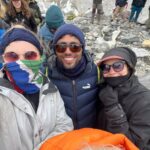
I had an incredible experience doing Everest Base Camp trek with Gokyo Lakes and Cho La Pass.
Bishnu and the team at Peaceful Nepal Tours and Treks were amazing and always went the extra mile to ensure that we have the best experience possible. The trek was well organised, professional and our accommodation was great. Our guide Bishnu was truly excellent and really knowledgable. With 14+ years experience, he is the best in the business and was able to plan the perfect itinerary for us.
Since Peaceful Nepal Tours and Treks is a small local company, we got the benefit of a personalised tour, constant priority treatment and we got to support local vendors – this made our trek really special.
I highly recommend booking a trek with Peaceful Nepal Tours and Treks!
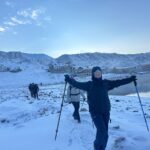
We had an amazing trekking experience with Peaceful Nepal Tours and Treks and Bishnu at Everest Base Camp and Gokyo Lakes. This is my second trek with Bishnu because he has so much experience and always makes sure we have a good time. He is our guide but also our doctor and our coach cheering us on the mountain while at challenging altitudes. We changed our itinerary so many times but he was always flexible and made the necessary arrangements. He has a great network throughout the trekking community and all his guests get the benefit of that too! Definitely recommend a trek with Peaceful Nepal Tours and Treks!

We had two amazing weeks with our guide Bishnu on our trek to Everest Basecamp!! Although we went there in high season, he knew how to avoid the big crowds what made the trip relaxing. I can’t recommend Bishnu more… he’s always smiling, telling good jokes and you can learn lots about the mountains, nature and culture! It was no problem to get near Lukla by jeep, he organized everything. He always made sure that we felt comfortable and healthy! Big plus: his English is really good, so even tough we all weren’t native English speaker, we had no problems communicating!😊
100% recommendation!

I did the Everest Base Camp trek with Bishnu. He was very kind and I never felt rushed, we went bistari bistari. It is a memory I’ll enjoy for a lifetime.

I did the Everest Base Camp trek with Bishnu. He was very kind and I never felt rushed, we went bistari bistari. It is a memory I’ll enjoy for a lifetime.

Mi experiencia en los 12 días de trekking hacia el Campamento Base del Everest fue increíble.
Con la ayuda Anjan pude conocer los mejores rincones y la historia que esconde la cordillera del Himalaya. Tiene muchos conocimientos sobre geografía y supervivencia así que siempre me sentí segura y acogida.
Se adaptó siempre a todas mis necesidades y manteniendo siempre la sonrisa.

It was a great experience to do the EBC Trek with Bishnu. The 15 days went by very quickly and you quickly became a friend in Bishnu because of his relaxed, funny and friendly manner. He was always there for you if you had a question or a problem and he knew a lot about the nature and culture of the Himalayas. He speaks perfect English, which made it very pleasant to travel with him. I can definitely recommend Bishnu as a guide and Peaceful Nepal Tours and Treks 🙂
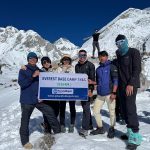
Very wonderful tour. The company’s boss Bishnu and guide Som are very kindly and friendly, always take care of our demands. After EBC trekking, the company also plan the nice KTM city tour for us. Big recommend!
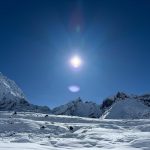
We choose 14 days trek. We have good company peaceful Nepal treks and tours guide and porter to help us to EBC tour, We encountered heavy snow on the way, but continued to provide us with good advice and plans, ensuring safety. This company give us good service and good price for ebc 14 days trip. We can highly recommend this company. Next time, we have a same company plan in ABC trekking.
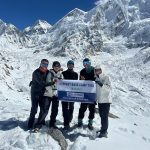
For those without any climbing experience, I was able to complete the 14-day EBC trip smoothly, thanks to Peaceful Nepal’s arrangement for our needs, especially the care of tour guide Som. Even if you encounter a storm of snow along the way, it’s safe, very pleased and thank you ❤️

I did the 14-day EBC (Everest Base Camp) trek, and from start to finish, Peaceful Nepal provided a wonderful experience. Although we encountered some unexpected situations along the way, such as flight cancellations at Lukla Airport and sudden snowfall, Peaceful Nepal was very flexible and adjusted the itinerary accordingly. Whenever there was an issue during the journey, they did their best to assist.
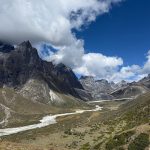
Binshnu was very helpful before the trip to address all the preparation questions and always promptly reply. During the trip, guide Narayan and porter were very thoughtful to adjust the daily schedule to make sure we were safe and sound and our trips met our expectations. Only the poor communication to the helicopter company makes us a little unhappy but overall great experience.
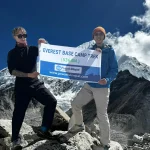
You can obtain a visa on arrival at Kathmandu’s Tribhuvan International Airport. Alternatively, you can apply for a visa online through the official Nepal Immigration website before your trip.
The ideal times to visit Nepal are from March to May and September to December. These periods offer the best weather conditions for outdoor activities like trekking and climbing, with clear skies and moderate temperatures.
Private Trips: Tailor-made to suit your specific needs and preferences, private trips offer a personalized itinerary and flexibility in scheduling. They are designed just for you and your companions.
Group Trips: These trips are open to others and follow pre-packaged itineraries with fixed departure dates. They are often more affordable and provide opportunities to meet fellow travelers.
What Makes Nepal Special?
Diverse People: Nepal is home to over a hundred different ethnic groups, contributing to its vibrant and varied culture. The northern mountainous regions are sparsely populated, with groups like the Sherpas having cultural and religious ties to Tibetan neighbors.
Amazing Landscapes and Wildlife: Nepal boasts dramatic landscapes, from the snow-capped peaks of the Himalayas to subtropical farming lands in the south. The country has the greatest elevation disparity in the world, ranging from 59 meters above sea level to the towering height of Mount Everest at 8,848 meters.
Travel in Nepal is relatively safe, with a low rate of serious crime. However, like any travel destination, it’s important to be cautious.
Altitude Sickness: One of the biggest risks is altitude sickness, especially for those trekking in the Himalayas. It’s crucial to allow time for acclimatization and avoid trekking alone. Opt for guided treks with experienced local guides to ensure a safe and enjoyable experience.
Overall, with proper planning and precautions, Nepal offers a rewarding and memorable travel experience.




If you are looking for travel in Nepal, Bishnu will help you to make your perfect trip plan. He has been working on this industry for more than 10 years